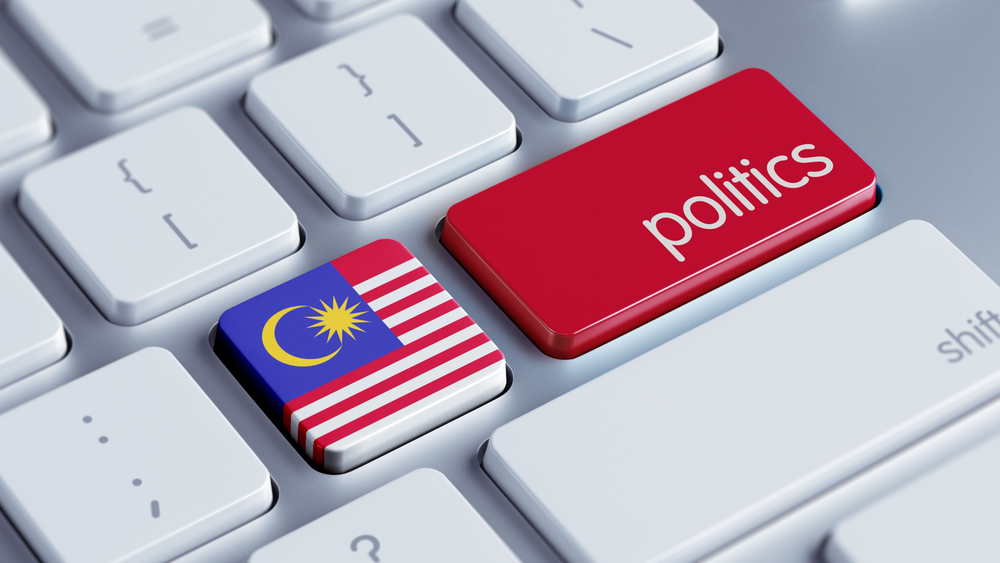Malaysia’s Political Opposition Leader Lands in Jail

Please note that we are not authorised to provide any investment advice. The content on this page is for information purposes only.
Malaysian opposition leader Anwar Ibrahim’s seven-year fight against sodomy charges ended on 10 February 2015. His five-year prison sentence was widely seen as a victory for his political opponents in using the law to silence him (again). The opposition coalition will struggle to overcome the loss of its leader. But Prime Minister Najib Razak is expected to face minimal international pressure on the verdict.
Malaysian opposition leader Anwar Ibrahim’s seven-year fight against sodomy charges ended on 10 February 2015. His five-year prison sentence was widely seen as a victory for his political opponents in using the law to silence him (again). The opposition coalition will struggle to overcome the loss of its leader. But Prime Minister Najib Razak is expected to face minimal international pressure on the verdict.
Anwar’s case was an attempt by the ruling United Malays National Organisation (UMNO) party, which has been in power since Malaysia’s independence in 1957, to eliminate Anwar from the political landscape. In 2013, the opposition coalition came close to achieving Malaysia’s first change of government. It won the popular vote in the national elections, but fell short of gaining a majority of seats in the highly gerrymandered electoral system. Anwar was the lynchpin to the opposition’s success.
There were accusations of political interference in Anwar’s sodomy trial from the start. Reports stated that Najib met the man Anwar allegedly sodomised two days before the act reportedly took place in 2008. Anwar’s lawyers raised questions early in the trial about whether the maintenance of DNA samples was proper and about contamination. They also expressed concern that the major evidence presented against Anwar was that there was no corroboration by other sources of the alleged victim’s statements.
In January 2012, a High Court judge acquitted Anwar and agreed about compromised DNA. But the Court of Appeals overturned this ruling in March 2014. The judges argued that the High Court had made a mistake in doubting the integrity of the DNA and reinstated the original guilty verdict and a five-year prison sentence. At the time, the United States and other countries condemned the verdict saying that it showed Malaysia’s judiciary was neither independent nor fair.
The opposition coalition is at a critical juncture as it prepares to elect new leaders. The problem is that there is no clear successor. The next generation significantly lacks Anwar’s charisma and political skill. In the meantime, the opposition leadership has fallen to Anwar’s oldest daughter Nurul Izzah Anwar. The 34-year-old, who has twice served as a member of parliament, represents the next generation in political leadership, but there are many doubts about her ability to fill Anwar’s shoes.
The opposition’s task of rebuilding is harder with the death of Nik Aziz Nik Mat in February 2015. Nik Aziz was the head of the opposition Pan-Malaysian Islamic (PAS) party, one of the component parties of the opposition coalition. Anwar and Nik Aziz were essential in keeping the disparate members of the coalition together and on message. The contest to replace Nik Aziz in his own party will be crucial to determining PAS’s future in the opposition. There is a faction within PAS that wants to break away to join UMNO because of their shared Islamic values and policies.
Najib has not gained much politically from Anwar’s removal as his main opponents are within his own party. Former Prime Minister Mahathir Mohamad has mounted an increasingly bitter fight to undermine and remove Najib.
Although the domestic struggles are obvious, the foreign policy implications for Malaysia are less clear. Malaysia is safe from criticism from its neighbours in ASEAN as the group adheres to the principle of non-interference in the affairs of other countries. The problem for Najib is that the international spotlight will focus on Malaysia in 2015 as it serves as the chair of ASEAN and the host of the East Asia Summit (EAS).
The United States’ cautious reaction to Anwar’s jailing stands in contrast to its condemnation of Malaysia following his first imprisonment. The US appears to have decided that it cannot afford disengagement and high-handed rhetoric because it has considerable interests attached to the 2015 ASEAN summit and EAS meeting. Malaysia also plays a critical role in the Trans-Pacific Partnership trade negotiations, scheduled for completion this year.
The US administration appears to remain committed to building its comprehensive partnership with Malaysia. It has maintained its invitation for Najib to visit Washington ahead of the EAS. Protests about Anwar’s imprisonment will likely arise during Najib’s visit, but the White House seems likely to downplay those concerns due to its broader interests in Malaysia and the Southeast Asian region.
How will the jailing of Anwar Ibrahim impact Malaysia’s foreign relations? is republished with permission from East Asia Forum




